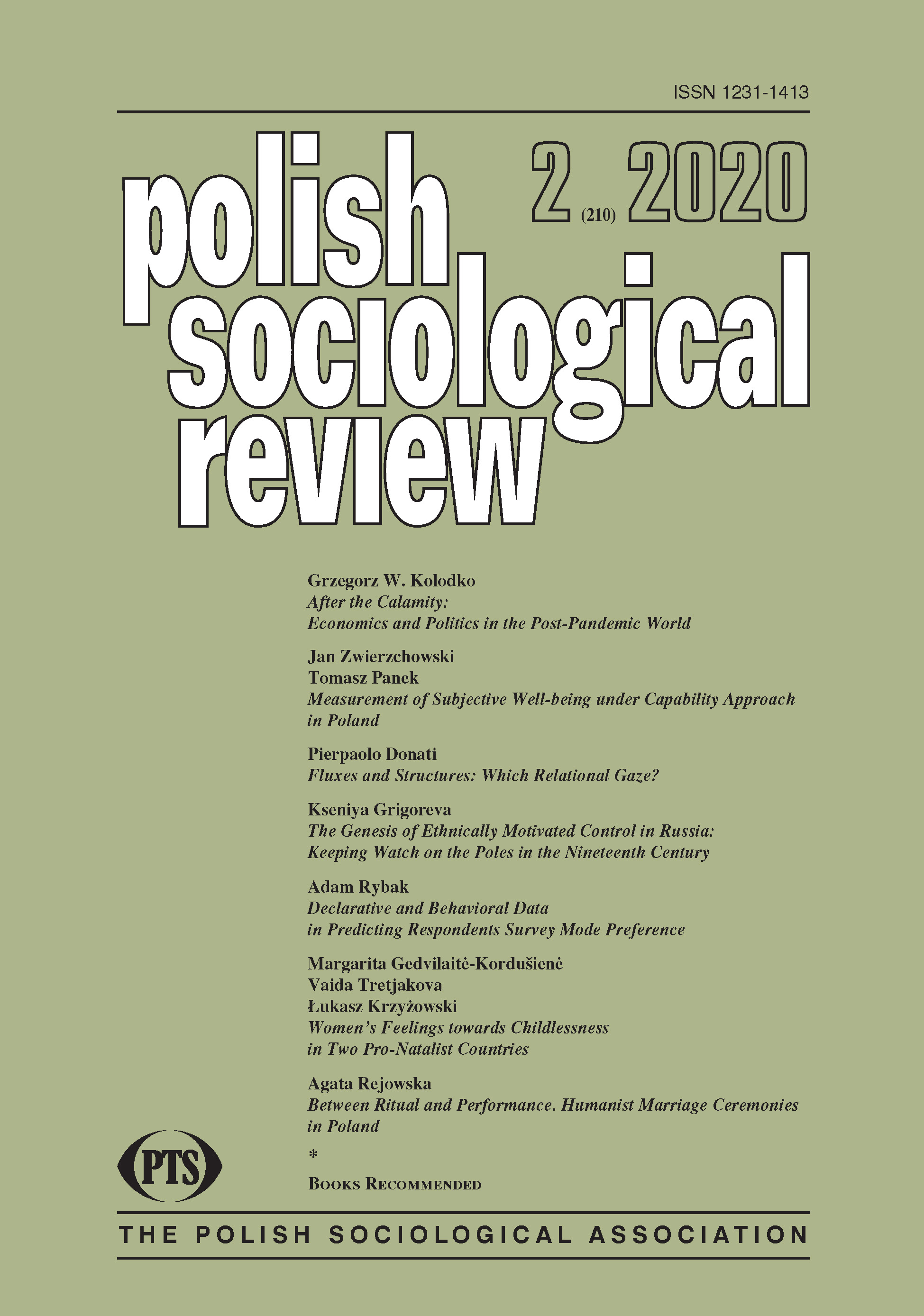Declarative and Behavioral Data in Predicting
Respondents Survey Mode Preference
Declarative and Behavioral Data in Predicting
Respondents Survey Mode Preference
Author(s): Adam RybakSubject(s): Social Sciences
Published by: Polskie Towarzystwo Socjologiczne
Keywords: European Social Survey; survey mode preference; mixed-mode survey design, adaptive survey design
Summary/Abstract: Using previously established knowledge about survey mode preferences distribution in a populationcan be one of many ways of improving representativeness and quality of data gathered by survey research. Apartfrom mode preference existence and stability, the main problem concerns the question: which of the sources ofinformation about mode preference could be treated as trustworthy. Because real observed choices are typicallytreated as better predictors of future choices than declaration only, this paper tries to answer the question: ‘Are thedeclarations a good predictor of preference in comparison to real choices?’ For this purpose, it uses combined datafrom 1) the 2015 Polish mixed-mode ESS experiment and 2) data from ESS8 in Poland. The multinomial logisticregression survey preference model includes socio-demographic variables accompanied by declaration/choicecontrol variable. The results suggest significant differences between choices/declarations. Findings could be usedto refine the contact strategies used in surveys
Journal: Polish Sociological Review
- Issue Year: 210/2020
- Issue No: 2
- Page Range: 219-228
- Page Count: 9
- Language: English

